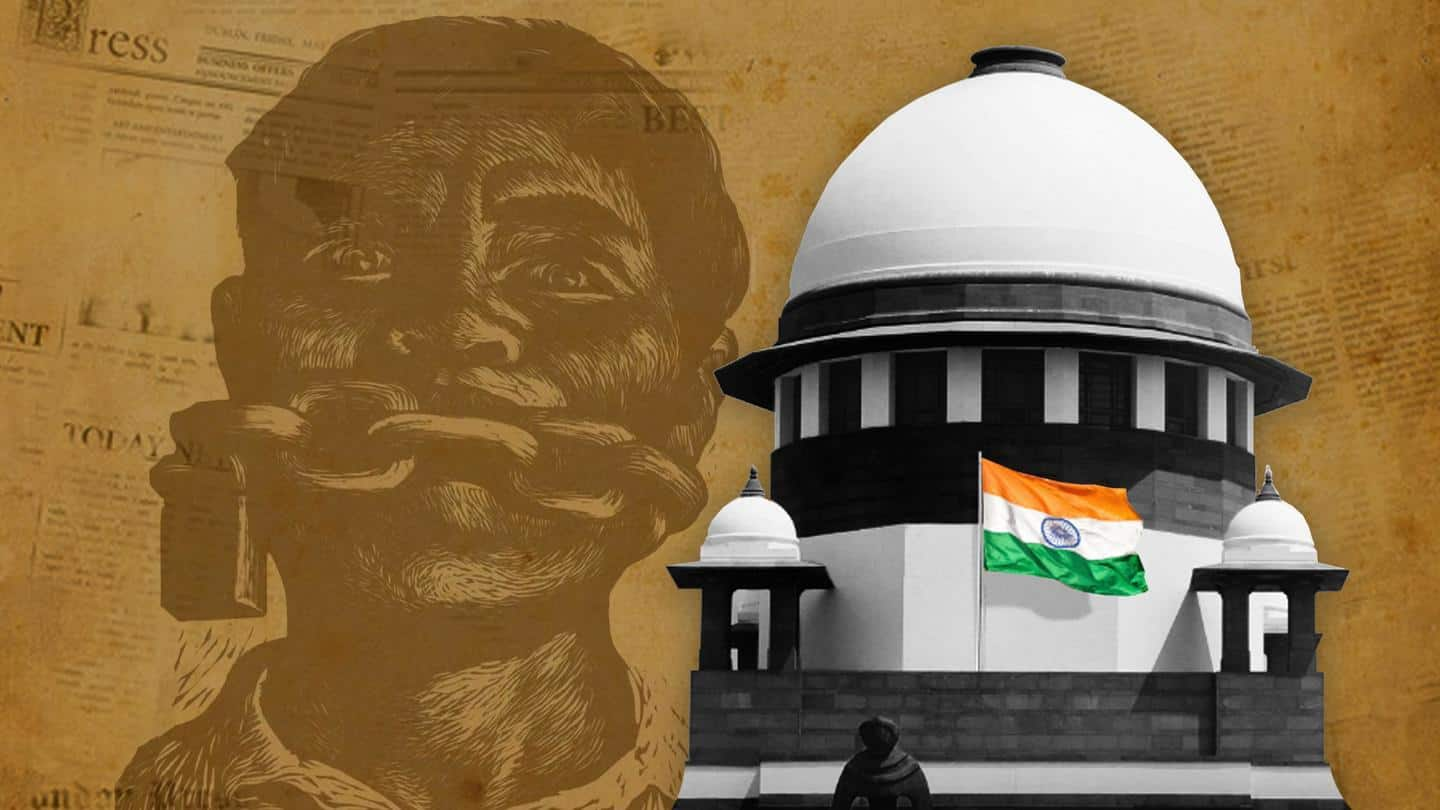
'Ready to re-examine sedition law': Centre reverses position in SC
What's the story
The Centre on Monday reversed its position on the sedition law in the Supreme Court within just two days.
It informed the SC that provisions of IPC Section 124A—commonly known as the sedition law—would be re-examined in the spirit of "Azadi Ka Amrit Mahotsav" and PM Narendra Modi's vision.
Earlier, the Centre defended the legislation and sought the dismissal of petitions filed against it.
Context
Why does this story matter?
The sedition law is a British-era law that was once imposed against freedom fighters like Mahatma Gandhi and Bal Gangadhar Tilak.
It faced criticism recently, too, from activists, politicians, and journalists saying it was being misused by the government against critics.
Notably, between 2016 and 2019, the number of cases filed under Section 124A jumped 160% but the rate of conviction declined to 3%.
Affidavit
What did the Centre say in its affidavit?
The central government has submitted a three-page affidavit to the apex court.
The Centre said that it was committed to preserving and upholding the sovereignty of the county and repealing antiquated colonial legislation.
The government is trying to eliminate colonial baggage as the country celebrates "Azadi Ka Amrit Mahotsav," it said in its affidavit to the SC.
Details
What was Centre's old stance?
Earlier, in its old affidavit filed on Saturday, the central government had cited a 1962 Supreme Court judgment defending the sedition law.
It had said that the sedition law and the 1962 judgment have withstood the test of time and its misuse can never justify the need for reconsideration.
Last week, it instead suggested framing guidelines to prevent misuse of the sedition law.
Supreme Court
Supreme Court's important decision of 1962
In 1962, the Supreme Court gave a major decision in the Kedar Nath Singh vs State of Bihar case, affirming the legality of the sedition law.
The top court ruled criticism of the government is not a seditious violation unless it is accompanied by incitement of violence.
It was hearing the sedition charges against Forward Communist Party member Singh initiated by the Bihar government.
About
What is sedition law?
The sedition law is defined in Section 124A of the Indian Penal Code (IPC).
Under this, if a person "brings or attempts to bring" hatred or contempt or "excites or attempts to excite disaffection" toward the government, they might face up to life in jail and a fine.
Supporting such acts may also reportedly be considered sedition.